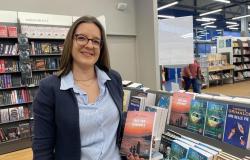The Liberal Party of Canada (PLC) leadership race is now well underway with the two main candidates, Chrystia Freeland and Mark Carney. Until now, they have focused on urgent economic and security issues, dictated in particular by the new American administration. Neither contender has mentioned indigenous issues as a priority.
In 2015, Indigenous people showed up in large numbers at polling stations, so much so that Elections Canada had to deploy additional workers to Indigenous neighborhoods in Winnipeg Center and find more ballots in ridings like Churchill .
During nearly a decade in power, the Liberals, under Justin Trudeau, have made significant progress on human rights and reconciliation. Although far from perfect, the government has pushed forward initiatives that many previous governments have failed to address.
The recognition of Indigenous languages, commitments to provide drinking water on reserves and the adoption of legislative texts, such as Bill C-92 which aims to restore control of children’s services to Indigenous peoples, in are some examples.
Robert Falcon Ouellette is an anthropologist from the Cree Nation Red Pheasantin Saskatchewan. He specializes in the areas of indigenous education, military ethics and political science. He holds a doctorate and two master’s degrees from Laval University. He also served in the Canadian Armed Forces and was the federal Liberal MP for Winnipeg Center from 2015 to 2019. He is now an associate professor in the Faculty of Education at the University of Ottawa.
However, the work is far from finished. Key issues like fully funding Jordan’s Principle to ensure equitable access to health services for Indigenous children, eliminating the Indian Act, and the critical shortage of Indigenous teachers in northern and regional schools isolated cases remain unresolved.
In these communities, teacher turnover is alarming, with many non-Indigenous teachers staying only a year or two before returning to urban centers. This disrupts children’s education and harms the stability of communities.
Additionally, the chronic underfunding of Indigenous child welfare programs continues to be a point of contention, as evidenced by the ongoing case before the Canadian Human Rights Tribunal. Ensuring long-term financing and structural reform of these programs must remain a priority.
Open in full screen mode
Prime Minister Justin Trudeau participated in an awareness walk on National Truth and Reconciliation Day in La Ronge, Saskatchewan, September 30, 2023. (File photo)
-Photo: The Canadian Press / Heywood Yu
Should we fear for the future of reconciliation?
Freeland and Carney’s decision to leave Indigenous issues out of their campaign speeches risks alienating a key segment of the liberal base. Indigenous voters and their allies played a crucial role in the party’s electoral success. They did so because of the tangible, if imperfect, progress made over the past nine years. Focusing solely on economic and geopolitical issues risks losing the momentum for reconciliation that has defined much of the PLC’s recent identity.
Chrystia Freeland’s campaign launch highlighted her experience as a tenacious negotiator, notably during the NAFTA renegotiations with Trump. Similarly, Mark Carney’s launch focused on his strong economic expertise and ability to guide Canada through turbulent financial times.
These are undoubtedly essential skills for any leader, especially given the economic uncertainty ahead. But a leader must also reflect the diverse priorities of the nation he aspires to lead. By neglecting Indigenous issues, both candidates send a message that reconciliation is no longer a priority, which is troubling for a country that has yet to fully confront its colonial past.
It is inconceivable that in 2025, some communities will still not have reliable access to clean drinking water. Likewise, eliminating the Indian Act — a colonial vestige — is a necessary step toward self-determination and equality. These questions cannot be postponed to another generation.
It is also crucial to protect the progress made against possible cuts under a future Conservative government. Pierre Poilievre’s rhetoric suggests that programs benefiting Indigenous people could be scaled back under his leadership. Indigenous children deserve better than a fragmented system that leaves many behind.
If the Liberal Party is to maintain its coalition and continue its legacy of progress, Indigenous peoples and their priorities must remain at the forefront. The leadership race is still young, and there is time for both candidates to fill this gap.
They must move beyond platitudes and offer concrete plans to tackle the unfinished business of reconciliation. This includes committing to fully funding Jordan’s Principle, accelerating the elimination of boil water advisories and investing in Indigenous education. The PLC’s success depends on its ability to balance competing priorities while remaining true to its core values.
A white limousine, a ridiculous luxury
Faced with Trump, let’s be strong, but focused on hope
Let’s inspire a Canada, united in its mission
Not just defend, but build a nation






